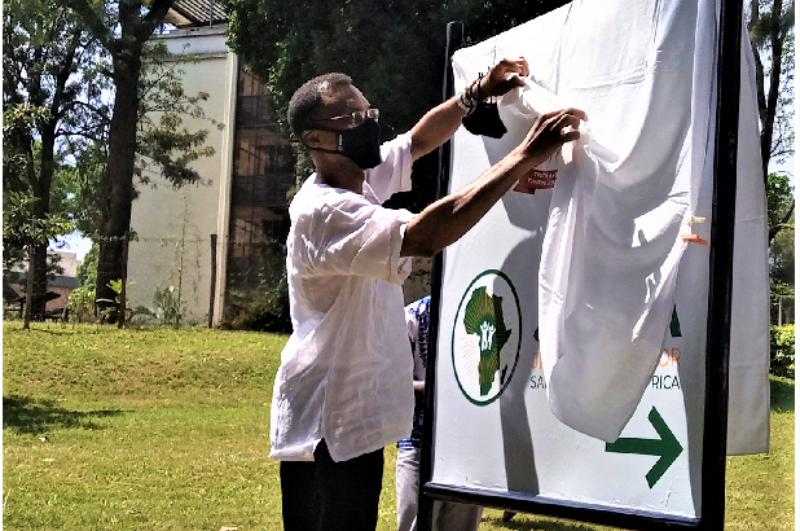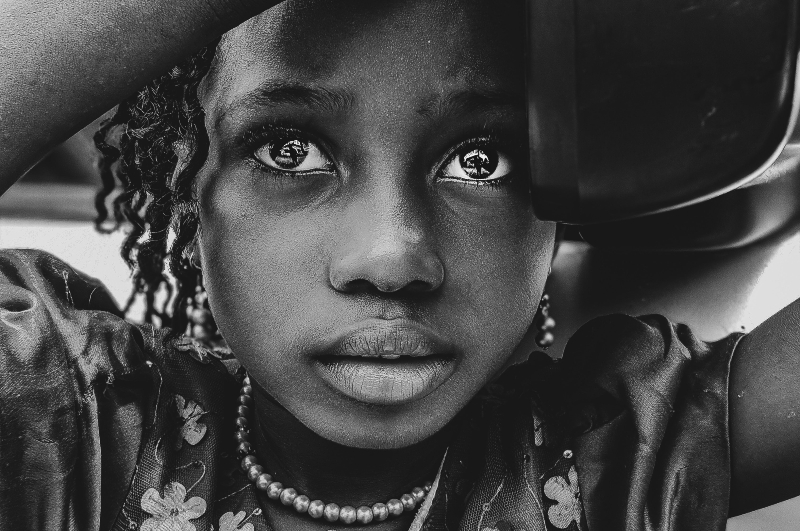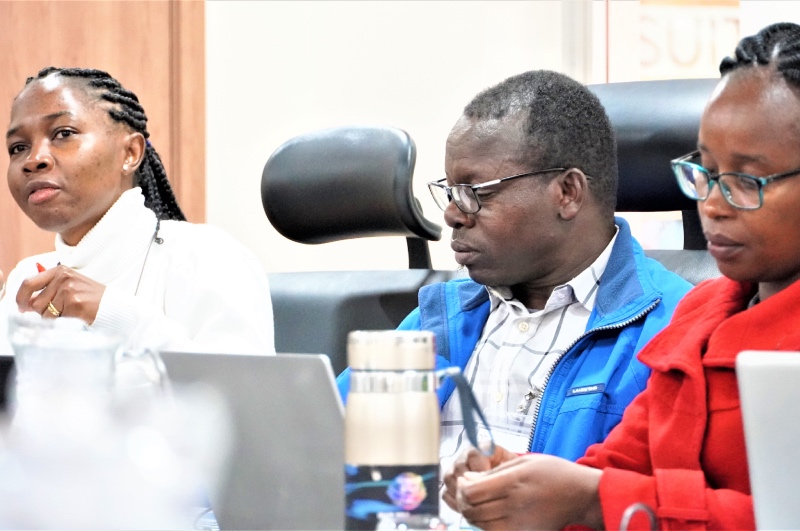

From September 26 to October 1, the Jesuit Conference of Africa and Madagascar (JCAM) hosted its annual Child Protection Officers (CPO) meeting at AFRICAMA House in Nairobi.
This gathering brought together CPOs to discuss strategies for safeguarding vulnerable individuals and enhancing the role of child protection within Jesuit ministries across the continent.
A Call to Compassion and Resilience
The meeting opened with a faith-sharing session led by Fr. Joachim Zoundi, SJ, a member of JCAM Safeguarding Commission, focusing on the spiritual foundation of safeguarding. Fr. Zoundi reminded attendees that safeguarding is more than a job; it is a calling to collaborate with God in promoting compassion, resilience, and care for the vulnerable. He encouraged CPOs to remain committed to their work, even amid challenges, and highlighted the importance of holistic support for those who serve as caregivers.
Reports from the Provinces: Progress and Challenges
Representatives from Jesuit provinces provided updates on safeguarding efforts, revealing both achievements and areas needing improvement:
North-West Africa (ANW): With a strong safeguarding team in place, ANW reported positive buy-in and robust support for safeguarding activities, particularly in formation forums.
West Africa (AOC): AOC is developing a comprehensive safeguarding policy across its 14 countries, addressing clericalism and ensuring consistent safeguarding practices in parishes, schools, and universities.
Eastern Africa (AOR): AOR demonstrated a sustainable model by allocating 3% of all development project funds to safeguarding, and providing ongoing training through a weekly newsletter. The province reported challenges in follow-up with trainees and highlighted a need for more in-person trainings to address emerging issues.
Southern Africa (SAP): SAP is revising its safeguarding policies for adaptation in each country, including translations into local languages. The province aims to create accessible, user-friendly guidelines and is exploring alternative disciplinary practices in schools.
Central Africa (ACE): ACE faces unique challenges such as cultural resistance to safeguarding, political instability, and conflicts, which complicate safeguarding efforts. Despite these, the province is committed to policy development in schools and parishes.
Expanding Safeguarding Initiatives in Jesuit Institutions
Several Jesuit educational institutions shared their safeguarding progress. The Institut de Théologie de la Compagnie de Jésus (ITCJ) has integrated safeguarding with psychosocial support, focusing on mental health and well-being. Hekima Jesuit University College (HUC) offers a certificate course in safeguarding, targeting theology students and incorporating both in-person and online formats. Arrupe Jesuit University (AJU) has developed a values-based diploma in safeguarding, though it faces challenges with funding and staff shortages.
Collaborative Insights and Key Recommendations
Participants emphasized the need to harmonize training across provinces, adapt safeguarding to local contexts, and enhance communication among Jesuit institutions. The group identified Eastern Africa’s funding model as a potential approach for other provinces and discussed the importance of adapting safeguarding language to better reflect African cultural contexts.
Attendees suggested creating a “first aid” induction program for new CPOs to provide foundational training, as well as developing an internal communication platform to share best practices and progress. In addition, a self-audit tool was presented as a means to regularly track safeguarding efforts, allowing for consistent evaluation and improvement.
Exploring Digital and Social Impact
Participants highlighted the importance of leveraging digital communication tools and social media to expand safeguarding awareness. A virtual presentation from the Principles of the Protecting Children in the Church Program (PCCP) explored the role of dignity, care, and social impact in safeguarding, underscoring that safeguarding is not just about policy but rooted in Catholic Social Teaching and Jesuit spirituality.
Looking Ahead
In his closing remarks, JCAM President Fr. Jose Minaku, SJ, expressed appreciation for the commitment to safeguarding work and emphasized the importance of harmonized training across regions. He called for proactive collaboration with local churches and dioceses, as well as consistency in communicating safeguarding activities to the wider Jesuit community.
The CPOs left Nairobi with a renewed sense of purpose and commitment to safeguarding across Jesuit ministries in Africa. With a focus on collaboration, cultural sensitivity, and resilience, the JCAM network is poised to advance protection initiatives and strengthen community well-being throughout the continent.
Related Articles





Select Payment Method
Pay by bank transfer
If you wish to make a donation by direct bank transfer please contact Fr Paul Hamill SJ treasurer@jesuits.africa. Fr Paul will get in touch with you about the best method of transfer for you and share account details with you. Donations can be one-off gifts or of any frequency; for example, you might wish to become a regular monthly donor of small amounts; that sort of reliable income can allow for very welcome forward planning in the development of the Society’s works in Africa and Madagascar.
Often it is easier to send a donation to an office within your own country and Fr Paul can advise on how that might be done. In some countries this kind of giving can also be recognised for tax relief and the necessary receipts will be issued.



